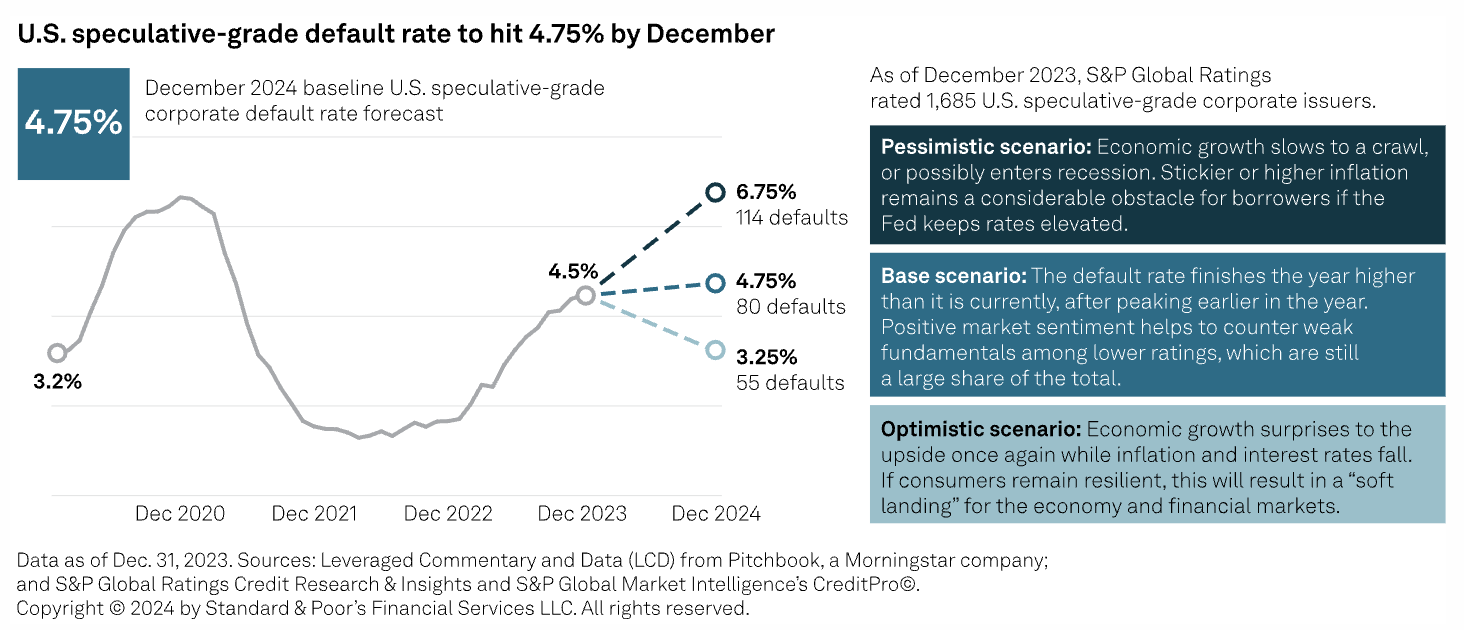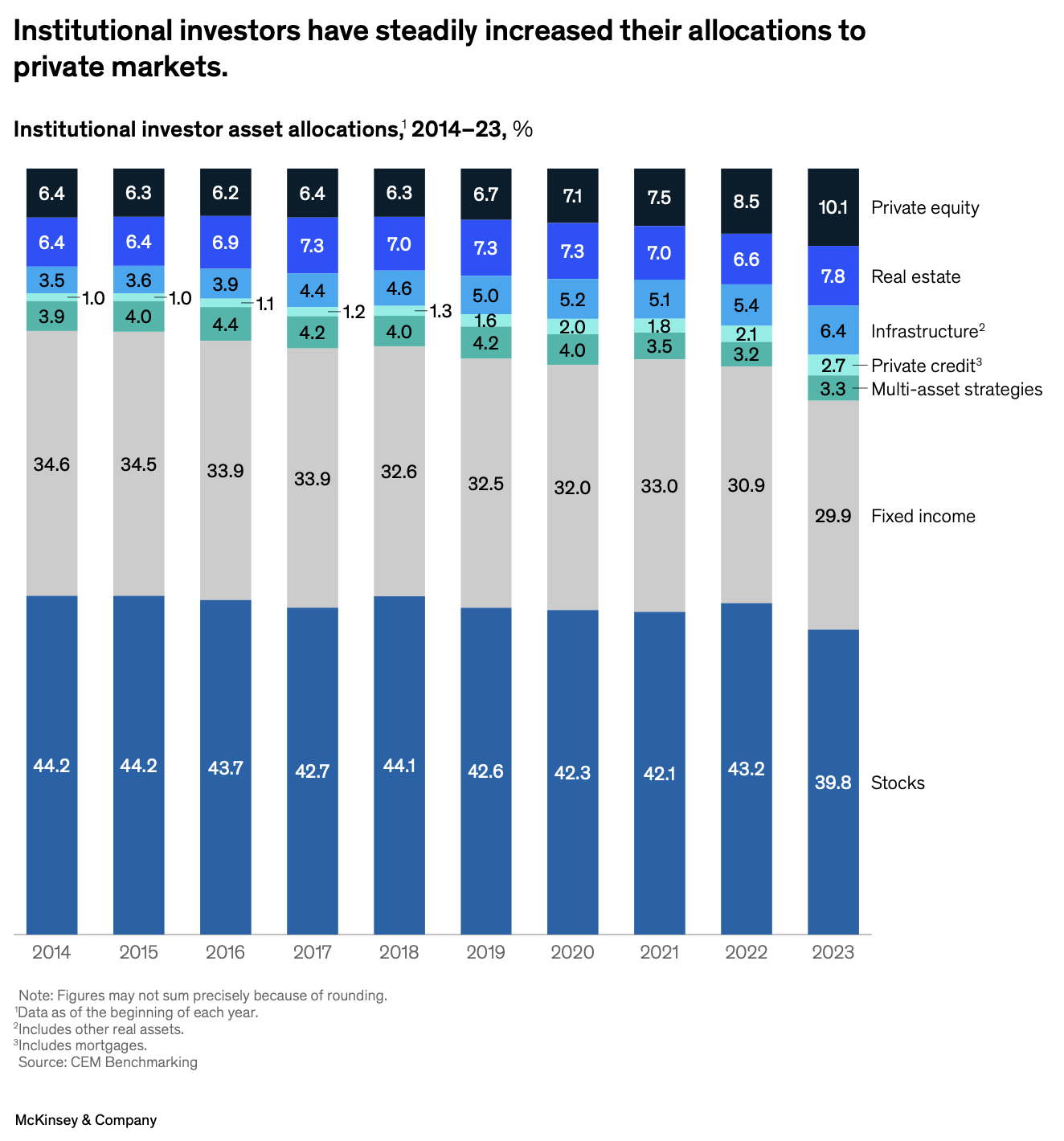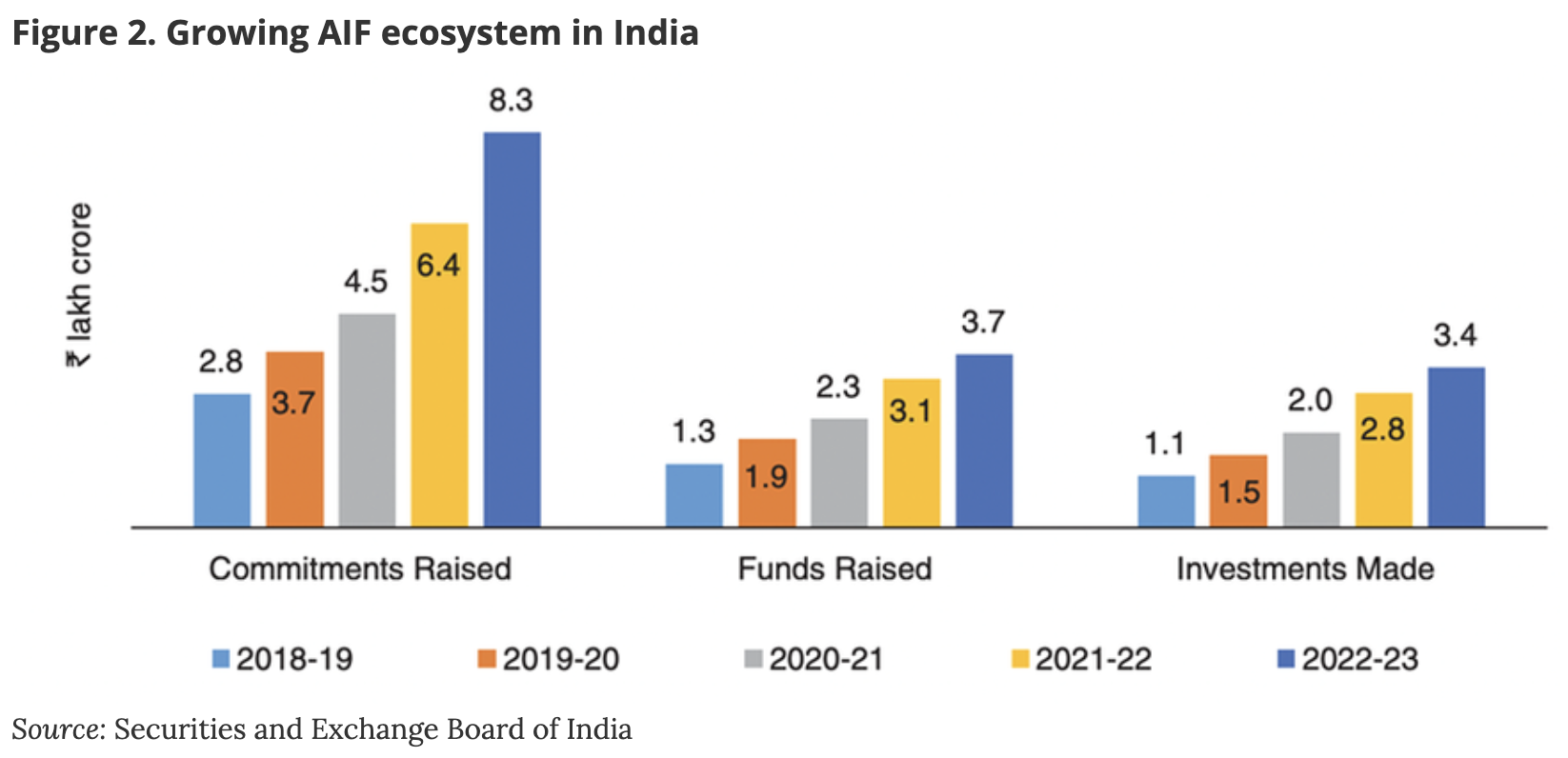Is Australian private debt the best bet in high rates regime?
At a Glance:
- The Federal Reserve's delays in the much anticipated rate cuts have widespread implications for the U.S. economy and the private sector.
- In this higher-for-longer interest rate environment, U.S. fund managers are dealing with escalating default risks, high levels of dry powder, and intense market competition.
- Seeking alternative investment avenues, fund managers are exploring high-growth markets like India, often overlooking the more compelling option: Australia.
It feels like waiting for Godot. For months, the Federal Reserve has announced imminent rate cuts that never came. In a turn of events, Fed Governor Michelle Bowman recently said that “should progress on inflation stall or even reverse,” she would support a rate hike.
Behind the Fed’s cautious stance are a robust consumer spending and resilience in the labour market: the U.S. economy added 303,000 jobs in March, far exceeding the expected figure of 205,000.
Both factors are continuing to exert upward pressure on prices. The March Consumer Price Index climbed to 3.5% year-over-year – up from February's 3.2%, surpassing economic forecasts.
This uptick, fueled by rising gas prices and stubbornly high housing costs, sparked a significant selloff on Wall Street, dampening hopes for a rate cut in June.
What does that mean for the underlying loan book of U.S. managers?
U.S. private debt state of play
U.S. fund managers are currently dealing with the impact of sustained high interest rates on their existing loan portfolios, particularly those comprising older vintages with covenant-lite terms, while trying to deploy the growing amounts of dry powder in an oversaturated market.
Increased default risks
Businesses are facing escalating pressures. The current regime not only increases the cost of new borrowing but also impacts the ability of companies to service existing debt. Defaults are increasing, especially in industries that are sensitive to economic cycles and interest rate fluctuations.
Speculative-grade corporate default rates in the U.S. are projected to jump from 4.5% in December 2023 to 4.75% in December 2024, according to S&P Global Ratings Credit Research & Insights.

Fund managers need to closely monitor these trends to adjust their risk management strategies, potentially tightening lending criteria or increasing oversight on high-risk borrowers to mitigate impending defaults.
Managing older loan vintages
Loans issued in the years leading up to 2021, often characterised by covenant-lite terms, are now facing heightened risks. These loans offer fewer protective covenants to lenders, exposing fund managers to increased credit risk, especially when higher rates limit borrowers' ability to meet their obligations.
To manage these loans proactively, fund managers have to closely monitor the financial health of borrowers and possibly restructure loan terms to mitigate default risks. This may include adjusting interest terms or renegotiating covenants to provide greater security to lenders while supporting the viability of borrowers.
For extra peace of mind, fund managers should provide financial guidance and support to borrowers to help them manage the challenging economic climate.
Challenges with dry powder
The U.S. private credit market is also dealing with an increasing amount of dry powder.
A McKinsey report indicates that in 2023 the volume of dry powder within the private credit industry has grown for the ninth consecutive year, reaching $3.7 trillion globally.
This growth can be attributed to some key factors:
- Decreased deal activity. Despite the availability of capital, the number of viable investment opportunities has not kept pace, leaving substantial capital on the table.
- Increased fundraising. Larger and more established funds have been particularly successful in attracting investor capital. This trend reflects investors' ongoing confidence in private markets as a source of potential high returns, despite broader economic uncertainties.
The chart below demonstrates the steady rise in institutional investors' allocations to private markets over the past decade.

- Economic uncertainties. Economic volatility, geopolitical tensions, and market fluctuations have made fund managers more cautious in their investment strategies. This caution has led to slower capital deployment as managers take more time to assess risks and wait for the right investment opportunities.
- Higher valuations and competition. The market has also seen higher asset valuations and increased competition for prime investment opportunities, which make it more challenging for managers to find investments that meet their return thresholds.
- Non-institutional and retail participation. As they seek alternatives to traditional equity and fixed income products, high-net-worth and retail investors are funneling capital into the private credit sector.
- Regulatory easing. Recent changes in regulation, such as those in the European Long Term Investment Funds and the SEC's disclosure requirements in the U.S., have lowered barriers for individual investors, broadening the capital base and altering the traditional fundraising dynamics.
Unallocated capital presents two main problems: it pressures fund managers to find viable investment opportunities in a competitive market, and it risks diminishing returns for investors if the capital remains uninvested.
Faced by all these challenges, fund managers are exploring new investment avenues and looking towards emerging markets or sectors that are less penetrated by mainstream private credit funds.
Punting on Asia
One of the biggest contenders for fund managers’ attention is Asia, with India positioning itself as a particularly promising market. In the October to December 2024 quarter, India’s GDP expanded 8.4%, far exceeding economists' expectations.
Offering access to credit for small and mid-sized firms that are often considered too risky by traditional banking standards, India’s private credit market has considerably grown. It is due to the limited service capacity of the banking system and the liquidity crisis in non-banking financial companies (NBFCs).
The so-called twin balance sheet crisis saw banks retract from lending to riskier industrial ventures and shift their focus to consumer credit. This retreat created a vacuum quickly filled by Alternative Investment Funds (AIFs), particularly post the introduction of the Insolvency and Bankruptcy Code (IBC) in 2016.
AIFs in India, comparable to private equity in structure and investor expectations, have surged in commitments and investments, particularly for distressed assets. As traditional sources of corporate finance pivoted towards retail lending, AIFs have stepped up, offering a promising alternative for mid-market firms underserved by conventional capital sources.

Yet, this shift isn't without its challenges. The regulatory environment for these private credit entities is still evolving, with recent measures aiming to improve governance and transparency, and to ensure AIFs do not sidestep financial sector regulations.
The lack of established legal frameworks can pose risks in terms of enforceability and recovery, with added operational challenges such as market depth and liquidity.
Emerging economies such as India certainly offer opportunities for high returns, but come with high risks, too. Besides the potential regulatory changes, it’s also important to consider their political and economic instability, and currency volatility.
Australia’s promises
Australia is a developed market which presents the dual advantages of providing emerging market returns for assets that are asset-backed and senior secured. This characteristic provides a cushion against the default risks prevalent in covenant-lite environments.
But there’s several other reasons that make Australia a highly compelling option for Fund Managers:
Economic stability and debt servicing
According to the 2024 RBA Financial Stability Review, most Australian households and businesses remain resilient, continuing to service their debts and meet essential expenses despite economic pressures.
The robust labour market and substantial savings accumulated during the pandemic have equipped Australians to adapt to economic challenges. Adjustments such as reduced discretionary spending and increased work hours have helped maintain financial stability.
While certain sectors face pressures – particularly lower-income households and the construction sector – the overall economic outlook suggests these challenges will gradually ease as inflation falls and incomes rise.
Business and financial sector resilience
The financial health of Australian businesses remains strong. Most businesses are managing to keep financial stress at bay, supported by healthy profit margins and strong balance sheets. This stability reduces the risk of widespread financial distress, even as some sectors experience subdued growth.
Australian banks are well-prepared to manage an expected increase in loan losses, with high capital levels and a very low percentage of borrowers in negative equity. Stress tests by the Australian Prudential Regulation Authority affirm that major banks can continue extending credit, even under severe economic downturns.
Real Estate and non-bank financial institutions
The domestic commercial real estate (CRE) market faces challenges, such as reduced prices and transaction volumes. However, the risk to the financial system remains low due to conservative lending practices and the presence of non-bank financial institutions (NBFIs) that have low leverage and robust investor redemption measures.
Risks in the broader NBFI sector are mitigated by effective regulatory oversight and the capacity of superannuation funds and other regulated entities to manage investment risks.
Overall financial system resilience
The Australian financial system is noted for its high resilience, capable of supporting the economy through adverse conditions. This resilience is reinforced by strong governance, risk management practices, and regulatory frameworks that ensure operational stability in the face of potential cyber threats, geopolitical risks and other external shocks.
5 topics

